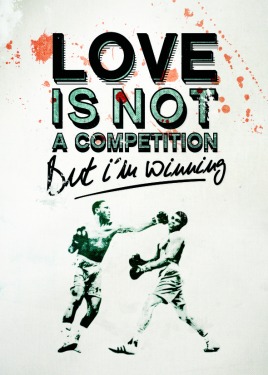
Our major adversarial institutions are not free-for-all, war-of-all-against-all, slugfests. They are highly regulated competitions, with specific rules in place to encourage desirable outcomes: convicting the guilty but not the innocent (law), creating prices and promoting efficiency (markets), electing competent governments (politics), entertaining fans (spectator sports). The “players” are invited to play to win; but the competitions are not in place primarily for their benefit, but mostly for the benefit of those outside the competition.
This, in a nutshell, is why it always matters who gets to write or amend the rules of these competitions. And why we worry when the “players” get to write their own rules. Especially when a subset of the players — the ones who happened to win the last round — get to write the rules for the next round.
As Arash Abizadeh writes in Toronto’s Globe and Mail,
Here’s the problem: letting politicians who won the last election decide future election rules is like letting the team who won the last playoff game decide rules for the next game. There’s an obvious conflict of interest. Electoral rules determine who forms government, and different rules favour different parties.
After surveying the options for a better process of electoral reform, Abizadeh recommends something novel:
how could electoral reform be legitimized? We need a manifestly fair procedure – a neutral body, unbeholden to politicians, that will reasonably evaluate the alternatives.
Fortunately, political scientists have a solution that fits the bill – a randomly selected citizen assembly. The idea is this: randomly select a few thousand Canadians, ask if they are willing to serve, and, from those saying yes, randomly select 100 to 200 to serve on an assembly empowered to determine federal election rules.
Putting regular citizens in charge may initially seem crazy. Wouldn’t citizens with no special experience or expertise make incompetent decisions? But that’s who decides referenda, too. In fact, Canada is a pioneer in using citizen assemblies to make decisions about voting systems.
We’ve done it twice before, in B.C. and Ontario. Political scientists havestudied both cases, and both were in many respects a great success. Once our fellow citizens received expert advice (about voting systems) and consulted the public, they became well informed, and their deliberations and decision-making were extremely competent and reasonable.
No surprise here: it’s well known to social scientists that under the right conditions, there is intelligence in numbers. The decisions of an assembly of regular but diverse individuals are often more intelligent than decisions by a lone genius or expert.
As they used to say in 1960s sitcoms, that is so crazy it just.. might.. work! It is also not beyond the realm of conceivability that the current Trudeau government in Canada, which promised electoral reform in its last campaign, would consider such a thing.
The probability that anything like this will happen south of 49th parallel, where two parties have successfully colluded to secure a political duopoly for generations, is approximately 0.0. Why think outside the box when the box is just fine the way it is? Why not just hire a consultant…















